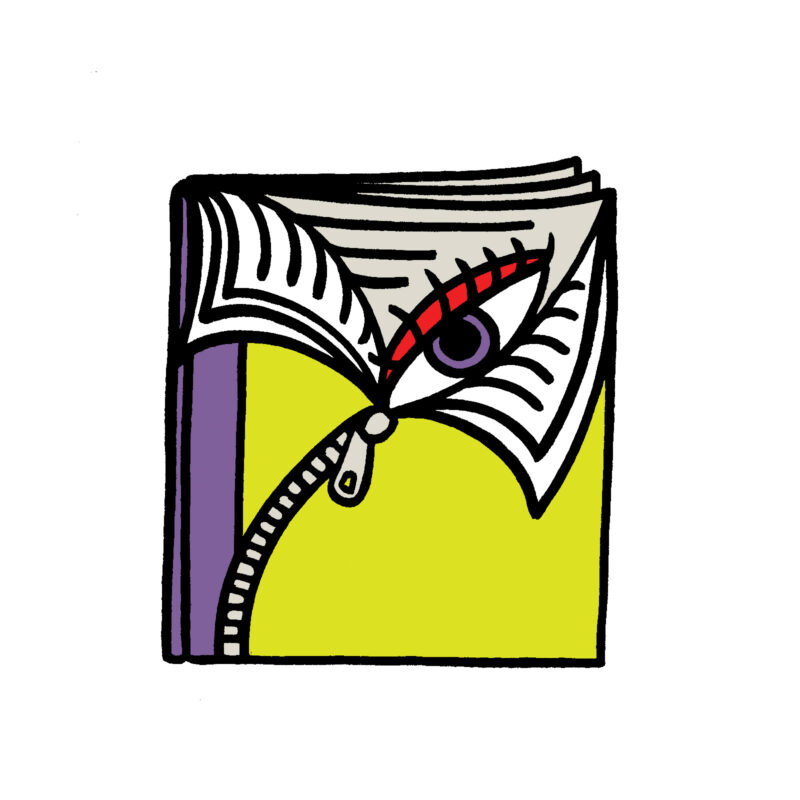Before we consumed movies under duvet-cover mountains or on airplanes flying over oceans, people dressed up to watch them in theaters. Heavy red curtains peeled back to reveal the silver screen as if it were a stage. After the arrival of more-casual movie houses, filmmakers rolled credits over an imposed curtain backdrop; in the first shot of Frankenstein (1931), an actor emerges from behind velvet folds to warn the audience that what they are about to see may shock them. Such overt framing devices are less common now that we’re used to flipping between reality and fiction.
In Barbara, a new novel by Joni Murphy saturated in the aesthetic dream of old Hollywood, this type of set dressing and stage setting is reanimated, with our speaker stoically monologuing her memoir. Her name is Barbara; she is forty years old; the year is 1975. She’s an actress filming a Western and having an affair with her younger male costar. In the afterglow of sex she can finally unfold herself, talk to him about the rapes she’d never call rape, the redness of her cheeks after her mother slapped them, and the bandanna she wore over her eyes in a green sedan on the way to an illegal abortion. Now that the curtain’s up, she’s going to spill her entire life story; what you are about to hear may depress you.
For most of the novel, Barbara’s first-person narration stays on a linear track. She whips past the milestones of her family trauma, romantic lows, and career highs, while tapping the touchstones of mid-century pop arts and culture. Barbara’s memory of her mother’s violence is tangled with her mother’s signature smell of “Dove soap and light sweat, Lucky Strikes and L’Air du Temps.” On the day she learned that her mother died by suicide, she spent the morning reading Marilyn Monroe’s cover story for Life. Barbara soon gets out of Colorado and chases the dream in New York City, where getting fingered under the tablecloth in a hotel restaurant leads her to an acting class, which leads her to summer stock theater, which leads her to more roles and more men. Asides like “We discussed atomic weapons and the inspirational Fidel Castro” are time stamps marking how far we have come.
But Barbara doesn’t read like historical fiction, and real-world events are blips in the story. (Sometimes they are ahistorical, like when Barbara says she observed the day Sylvia Plath died—Plath was famous only posthumously.) Murphy—who studied interwar Germany in her twenties and wrote a master’s thesis on Walter Benjamin and childhood—is most interested in the psyche of the woman she created on the page. Yet images are what Barbara’s made of. Murphy casts her in many sumptuous scenes: chocolate mousse arriving on a sky-high dessert cart, a hypnotism in Hell’s Kitchen, and the great idea to wear “something lacy, bought off the rack from the summer sale section” to your own wedding.
She also employs the trick of some post-Austerlitz novelists of embedding photographs within the text. These black-and-white postcard snapshots—mostly open-source from the Library of Congress, plus some of Murphy’s own family photos—have the odd effect of making Barbara, whose name was the third most popular choice for baby girls in the year she was born, anyone and no one.
The one thing that characterizes Murphy’s Barbara is the sex she has, described early in the book, when she realizes that “a girl can be any object… A girl can be a high arch hidden inside a clean white Ked.” The natural blond’s opportunistic awareness of her sex appeal culminates in whispered nothings like “Eyes are vaginas.” Barbara claims that the best thing she ever did “was marry a man who didn’t want to destroy me,” though she clearly misses the passion that’s part of destruction.
When Barbara muses about how thin she is, or the new bath set she bought from Bloomingdale’s, it’s clear that Murphy sought to capture a repression so inherent and deep that the woman who’s drowning doesn’t notice.
Publisher: Astra House Page count: 240 Price: $28 Key quote: “The clothing of my memory shifts around, like a skirt twisted so that the zipper’s over my hip when it’s supposed to be in the back.” Shelve next to: Stephanie LaCava, Nathalie Léger, Joyce Carol Oates Unscientifically calculated reading time: Several nights spent unsuccessfully scrolling for something to watch on the Criterion Channel





